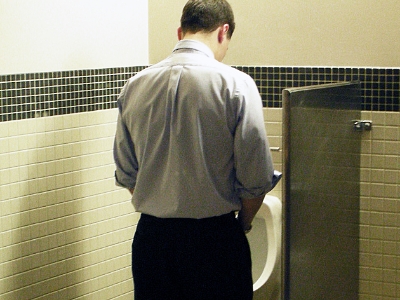Diabetic Nephropathy: Symptoms, Risk Factors, Stages, Causes, and Treatment

Diabetic nephropathy affects the kidneys’ ability to do their usual work of removing waste products and extra fluid from your body. The best way to prevent or delay diabetic nephropathy is by maintaining a healthy lifestyle and adequately managing your diabetes and high blood pressure. Over many years, the condition slowly damages your kidneys’ delicate filtering system. Early treatment may prevent or slow the disease’s progress and reduce the chance of complications.
What is Diabetic Nephropathy?
Diabetic nephropathy is a serious complication of type 1 diabetes and type 2 diabetes. It’s also called diabetic kidney disease. In the United States, about 1 in 3 people with diabetes have diabetic nephropathy. There are five stages of diabetic nephropathy. The fifth stage is ESRD. Progress from one stage to the next can take many years.
Signs and Symptoms of Diabetic Nephropathy
In the early stages of diabetic nephropathy, you would likely not notice any signs or symptoms. In later stages, signs and symptoms may include:

- Worsening blood pressure control
- Protein in the urine
- Swelling of feet, ankles, hands, or eyes
- Increased need to urinate
- Reduced need for insulin or diabetes medicine
- Confusion or difficulty concentrating
- Shortness of breath
- Loss of appetite
- Nausea and vomiting
- Persistent itching
- Fatigue
Make an appointment with your doctor if you have any signs or symptoms of kidney disease. If you are living with diabetes, visit your doctor yearly or as recommended for kidney function tests.
Risk Factors of Diabetic Nephropathy
If you’re living with diabetes, factors that can increase your risk of diabetic nephropathy include:
- Uncontrolled high blood sugar (hyperglycemia)
- Uncontrolled high blood pressure (hypertension)
- Being a smoker
- High blood cholesterol
- Obesity
- A family history of diabetes and kidney disease
Stages of Diabetic Nephropathy
The stages of any kidney disease, including diabetes-related nephropathy, include:
- Stage I. Your GFR is 90 or higher. At this stage, your kidneys have mild damage but still function normally.
- Stage II. Your GFR may be as low as 60 or as high as 89. You have more damage to your kidneys than in stage I, but they still function well.
- Stage III. Your GFR may be as low as 30 or as high as 59. You may have mild or severe loss of kidney function.
- Stage IV. Your GFR may be as low as 15 or as high as 29. You have severe loss of kidney function.
- Stage V., Your GFR, is below 15. Your kidneys are nearing or at complete failure.
What Causes Diabetic Nephropathy?

Hypertension, or high blood pressure, is a complication of diabetes that is believed to contribute most directly to diabetic nephropathy. Hypertension is believed to be a cause of diabetic nephropathy and a result of the damage created by the disease. As kidney disease progresses, physical changes in the kidneys often lead to increased blood pressure. Uncontrolled hypertension can make the progress toward stage five diabetic nephropathy occur more rapidly.
The high blood sugar associated with diabetes also causes damage to the kidney through many different and complicated pathways. Most of this damage is directed toward the blood vessels that filter the blood to make urine.
Treatment, Management, and Prevention of Diabetic Nephropathy
The first step in treating diabetic nephropathy is to treat and control your diabetes and high blood pressure. It includes diet, lifestyle changes, exercise, and prescription medications. With good management of your blood sugar and hypertension, you may prevent or delay kidney dysfunction and other complications. If your disease progresses to kidney failure, your doctor will likely discuss options for care focused on either replacing the function of your kidneys or making you more comfortable.
If you have diabetes, you should schedule regular appointments with your healthcare provider every three to six months or as your healthcare provider recommends. If you have diabetes, your healthcare provider will recommend annual diabetes-related nephropathy testing five years after your initial diagnosis. Kidney damage usually doesn’t appear within the first 10 years of your diabetes diagnosis. If you’ve had diabetes for more than 25 years and don’t have kidney damage, you’re less likely to develop diabetes-related nephropathy.
The best way to prevent diabetes-related nephropathy is to manage your diabetes and lower your blood pressure. Be sure to follow your treatment plan as prescribed by your healthcare provider.



